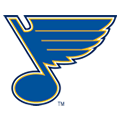Pronger will join Florida as a Senior Advisor to the President of Hockey Operations, officially ending his NHL career.
Even now, Chris Pronger still has lingering effects from his concussion.
The good news is that he is getting better. "I still can be symptomatic if I overdo it, but I've been pretty steady with the eye therapy and making some pretty good progress," Pronger said. "There are still two or three issues with the eye that I'm having trouble with. I think that's the root of a lot of the issues is the eye, and that's creating a lot of the head stuff. But other than that, I've been pretty good." Pronger will not be returning to the NHL as a player.
Philadelphia GM Paul Holmgren confirmed that Chris Pronger will never play hockey again during an interview with Ken Campbell of The Hockey News.
"I'll say it, Chris is never going to play again," said Holmgren. "I have no problems saying it." It's been widely believed for a while that Pronger's playing days were over, the Flyers had never made a definitive statement regarding the future of their former captain. Pronger has not played since Nov. 19, 2011. It will be interesting to see if Philadelphia incurs any salary cap issues now that they've admitted that Pronger won't be back. Since he hasn't retired and he gets placed on a long-term injured reserve it allows the Flyers to have flexibility under the salary cap.
Chris Pronger spoke about the struggles, which included depression, he's dealt with during his recover from an inadvertent stick to his right eye.
Pronger hasn't played in 16 months, as the incident left him with vision loss and severe concussion symptoms. "You get headaches, you're not wanting to do anything, you sit around, you can't work out, you get depressed," said. "You try to work out and you get nauseous, a headache, you want to lay down. It's an awkward feeling, and it's something that when you haven't experienced it before you really don't understand what it is that these guys are talking about. I guess the biggest part is the depression and how you feel about yourself and how you feel about the injury. How dark you go down." Doctors are unsure if he'll ever regain his peripheral vision and he is still dealing with headaches -- even after a news conference -- when he has any physical activity.
Chris Pronger hasn't given up on the possibility of playing hockey again.
That being said, Pronger is 38 years old, hasn't played since Nov. 19, 2011, and is still dealing with concussion-related symptoms. He has had difficulty doing activities that raise his heart rate. In addition he's continually getting strong prescription of glasses and is dealing with diminished peripheral vision. So a comeback doesn't seem likely, but Pronger isn't ready to retire yet. It's worth noting that Pronger comes with an annual cap hit of $4,935,714 and because he signed it over the age of 35, he'll stay on the Flyers' books if he retires. However, if he doesn't retire, the Flyers can get around his cap hit by keeping him on the long-term injured reserve list.
Chris Pronger spoke with Sportsnet's Dan Murphy in an interview recently that will air in a two-part series beginning Wednesday night in Canada.
Pronger was struck in the eye on Oct. 24, 2011 by an errant stick, which resulted in an ocular concussion and he hasn't played since Nov. 19, 2011. "What happened was, I had 30-year-old eyes. I got hit and the doctor told me I had 60-year-old eyes," Pronger said. "I don't have very good peripheral vision." Pronger also touched on his current state and the subject of retirement when he said: "It's gotten a little better. I can leave the house and go do stuff. If I do too much, I may get a headache. Occasionally, if I start to feel a bit better and I do a bit more, I get nauseous. Everyone wants to go out like a John Elway, where he wins two Super Bowls and retires on his own terms. Very, very few people get a chance to do that."
Chris Pronger will not be on the ice but will still attend the Philadelphia Flyers' condensed training camp this week.
The 38-year-old suffered an ocular concussion and hasn't played since Nov. 19, 2011. It has been widely believed for quite some time that his playing days are over because of post-concussion syndrome.
As some expected, players on the long-term injured reserve won't be eligible for the special CBA buyouts, according to CSNPhilly.com's Tim Panaccio.
That applies to significant cap cloggers such as Chris Pronger and Marc Savard. It's not especially surprising, yet teams in those binds probably would've liked an easier way out amid changing times.
The Flyers could be in rough shape if the new CBA imposes contract-variance limits.
This seems like an inevitability in order to prevent teams from circumventing the cap. Over the last seven years, the Flyers, the biggest culprit, have given out 22 major deals, with only seven conforming to a 20 percent variance. In fact, the average on the 15 contracts is 30.2 percent. The Flyers' worst contract was that given to Chris Pronger: a seven-year, $34.45 million pact signed when he was 35. It began with a $7.6 million salary and would end with $525,000 over its last two years.
 Anaheim Ducks
Anaheim Ducks
 Boston Bruins
Boston Bruins
 Buffalo Sabres
Buffalo Sabres
 Calgary Flames
Calgary Flames
 Carolina Hurricanes
Carolina Hurricanes
 Chicago Blackhawks
Chicago Blackhawks
 Colorado Avalanche
Colorado Avalanche
 Columbus Blue Jackets
Columbus Blue Jackets
 Dallas Stars
Dallas Stars
 Detroit Red Wings
Detroit Red Wings
 Edmonton Oilers
Edmonton Oilers
 Florida Panthers
Florida Panthers
 Los Angeles Kings
Los Angeles Kings
 Minnesota Wild
Minnesota Wild
 Montreal Canadiens
Montreal Canadiens
 Nashville Predators
Nashville Predators
 New Jersey Devils
New Jersey Devils
 New York Islanders
New York Islanders
 New York Rangers
New York Rangers
 Ottawa Senators
Ottawa Senators
 Philadelphia Flyers
Philadelphia Flyers
 Pittsburgh Penguins
Pittsburgh Penguins
 San Jose Sharks
San Jose Sharks
 Seattle Kraken
Seattle Kraken
 St. Louis Blues
St. Louis Blues
 Tampa Bay Lightning
Tampa Bay Lightning
 Toronto Maple Leafs
Toronto Maple Leafs
 Utah Hockey Club
Utah Hockey Club
 Vancouver Canucks
Vancouver Canucks
 Vegas Golden Knights
Vegas Golden Knights
 Washington Capitals
Washington Capitals
 Winnipeg Jets
Winnipeg Jets